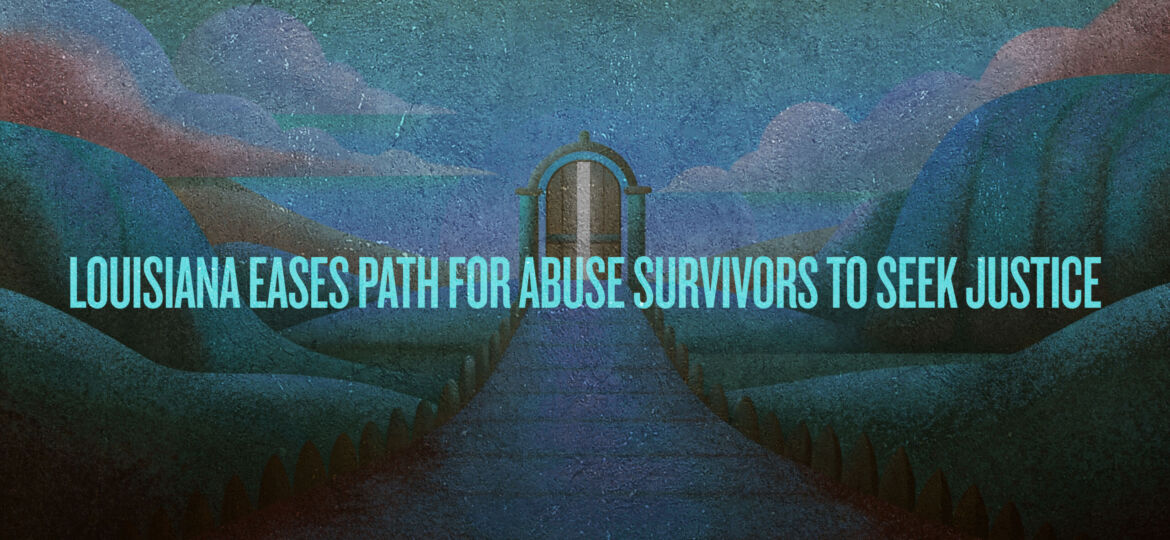Louisiana Eases Path for Abuse Survivors to Seek Justice
After being denied a path to justice, Louisiana survivors now have hope.
This hope emerged from an unexpected move by the state’s supreme court. First, in March, the Louisiana Supreme Court ruled that a civil “lookback window law” allowing child sexual abuse survivors to take legal action was unconstitutional. However, in June, the court reversed its decision. Now, survivors of abuse can seek justice against perpetrators and the institutions that protected them.
We expect hundreds of men and women in Louisiana who have suffered in silence for decades to step forward, expose wrongdoers, protect children, and obtain justice.
The Catholic church has deep roots in Louisiana, and clergy abuse survivors have faced significant obstacles. The state, with 29.84% of its residents identifying as Catholic, was where the church’s abuse and cover-up crisis first gained national attention in 1984, with Fr. Gilbert Gauthe of the Lafayette Diocese accused of molesting up to 39 children.
The secular power structure in Louisiana has long been influenced by the Catholic Church:
- Four of the last five governors have been Catholic.
- The population in southern Louisiana, especially Greater New Orleans, is predominantly Catholic.
- The church’s influence extends to the judiciary. A federal judge recused himself after donating thousands to the Archdiocese and ruling in favor of the church in a case involving nearly 500 clergy sex abuse victims.
Additionally, the New Orleans Saints, one of only two professional sports franchises in the state, has shown support for the Archdiocese. The Saints’ PR chief advised the church on addressing the abuse crisis, and team owner Gayle Benson, a close friend of the Archbishop, has made substantial donations to the church.
Given these challenges, many abuse survivors in Louisiana felt hopeless, especially as other states took steps to address similar issues.
In 2021, after years of resistance, Louisiana lawmakers passed a window law, and the governor signed it, raising hopes that church secrets would be revealed, and survivors could file civil lawsuits. However, Lafayette Bishop Douglas Deshotel challenged the law, and New Orleans Archbishop Aymond sought Chapter 11 protection to block lawsuits.
In March, the Louisiana Supreme Court ruled the window law unconstitutional, blocking potential lawsuits. Survivors were back to square one, denied their day in court.
In April, Louisiana’s attorney general requested the Supreme Court reconsider its decision. Remarkably, the court reversed its ruling and declared the law constitutional. In May, lawmakers extended the time for survivors to file lawsuits until June 14, 2027.
Now, anyone sexually violated as a child in Louisiana can use the civil justice system to expose crimes and cover-ups and seek justice.
To all Louisiana survivors: Congratulations on enduring the frustrating legal maneuvers deployed by Catholic leadership. Securing the right to file a lawsuit is a significant win. You deserve justice, and now you can seek it. Take advantage of this opportunity.


